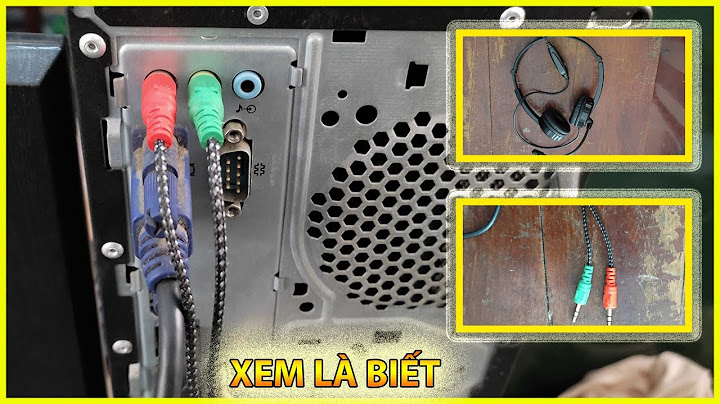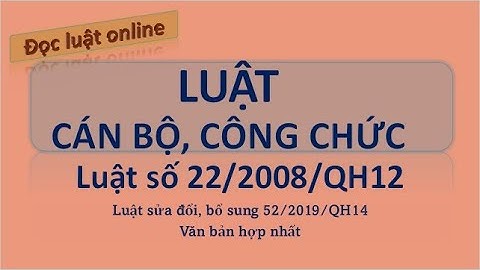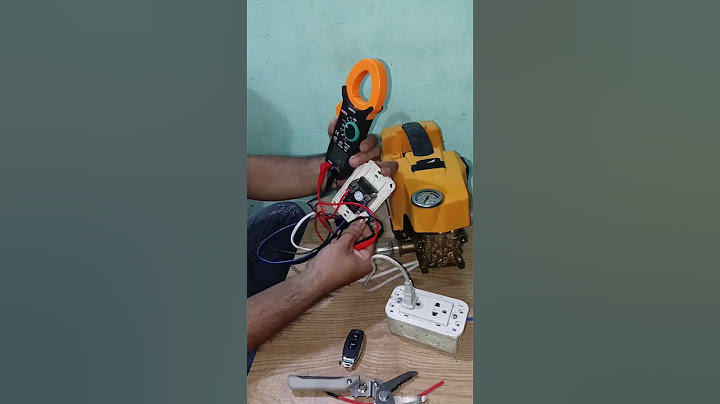có đáp án bao gồm: lý thuyết, cách làm, bài tập vận dụng và vận dụng cao sẽ giúp các bạn học sinh nắm được cách làm bài tập ngữ pháp tiếng Anh GERUND AND INFINITIVE và làm bài tập Tiếng Anh dễ dàng hơn Bài tập ngữ pháp tiếng Anh GERUND AND INFINITIVE có đáp án
1. Gerund và Infinitive là gì? Gerund (Danh động từ) là những từ có cấu trúc như một động từ, nhưng lại có chức năng làm danh từ. Danh động từ là những động từ thêm “ing” để biến thành danh từ. Infinitive (Động từ nguyên mẫu) là những động từ có cấu trúc cơ bản nhất. Động từ nguyên mẫu được chia thành 2 loại: động từ đi kèm bởi “to”, và động từ không có “to”. 2. Các quy tắc sử dụng bạn cần biết Dưới đây là một số quy tắc khi sử dụng Gerund và Infinitve cần thiết khi học tiếng Anh đặc biệt là khi học tiếng Anh online cho người đi làm. Quy tắc 1: Gerund có thể làm chủ ngữ trong câu Hãy theo dõi một vài ví dụ sau: - Swimming is good for your health. - Making mistakes bring me more experiences. - Becoming an engineer is a childhood dream. Những từ được in đậm “Swimming”, “Making mistakes”, “Becoming an engineer” là những danh động từ với chức năng làm chủ ngữ trong câu. Quy tắc 2: Cả Gerund và Infinitive đều có thể làm tân ngữ Cả Gerund và Infinitive đều có thể làm tân ngữ. Bạn có thể nói “I enjoy drawing” và bạn cũng có thể nói “Yesterday, I decided to draw” Với một số động từ, đi kèm, nó sẽ là Gerund hoặc Infinitive. Cụ thể: - Các động từ đi kèm với Infinitive: Agree: I agreed to help her. Decide: I decided not to take part in the meeting. Deserve: Everyone deserves to be respected. Expect: I expect to see the new movie tomorrow. Hope: We were hoping to avoid traffic by leaving early. Learn: He learned not to trust anyone. Need: She needs to learn English. Offer: I offered to help Susan with homework. Plan: We are planning to our picnic tomorrow. Promise: My mother promised to buy a new dress for me. Seem: We seem to be lost. Wait: I cannot wait to see him. Want: I want to go to the movie theater. - Các động từ đi kèm với Gerund: Admit: They admitted going to the zoo. Advise: I advise proceeding (moving forward) with caution. Avoid: She avoided asking him the question about his mother. Consider (think about): I considered staying silent, but I had to tell her. Deny: I denied going to the party. Involve: The course involved writing three tests. Mention (say something): She mentioned seeing my brother at the school. Recommend: I recommend watching this movie. Risk: Don’t risk losing your job! Suggest: I suggest going to the library. Quy tắc 3: Infinitive có thể sử dụng sau một số tính từ Ngoài việc trở thành tân ngữ đi sau một số động từ, Infinitive có thể được sử dụng sau một số tính từ. Ví dụ: - It is not easy to graduate from university. - It is necessary to speak English to work in a hotel. - It is wonderful to have close friends. Khi miêu tả một thứ gì đó bằng tính từ (Những từ in nghiêng trong ví dụ) thì theo sau nó phải là một Infinitive. Sử dụng Gerund trong trường hợp này là sai. Tuy nhiên, nếu bạn muốn biến những từ in đậm thành chủ ngữ, bạn sẽ phải chuyển chúng thành Gerund (xem quy tắc 1). - Graduating from university is not easy. - Speaking English is necessary to work in a hotel. - Having close friends is wonderful. Quy tắc 4: Chỉ có Infinitive được dùng sau tân ngữ chỉ người. Đặc biệt, chỉ có Infinitive được dùng sau tân ngữ chỉ người. Ví dụ: “We asked her not to go”. Trong ví dụ này, “We” là chủ ngữ, “asked” là động từ, và “her” là tân ngữ của đại từ “she.” Vì vậy bạn phải sử dụng Infinitive “to go”, sau tân ngữ đó, không phải là gerund. Dưới đây là một số động từ được theo sau bởi tân ngữ chỉ người và khi đó bạn phải dùng Infinitive. Ask: Can I ask him to help me clean the floor? Expect: I never expected him to become my boyfriend. Hire (give a job to someone): Did the company hire you just to sit in your office? Invite: I invited her to attend my birthday party. Order: She ordered the child to stay at home. Remind: Please remind me to go to work. Require: This job required us to have experience. Teach: That will teach you to follow the rules! Tell: Who told you to come here? Warn: I am warning you not to do this! Quy tắc 5: Chỉ có Gerund theo sau giới từ. Giới từ có thể đứng trước danh từ, đại từ, động từ. Đặc biệt khi giới từ đứng trước động từ thì động từ phải ở dạng Gerund. Ví dụ: - He is not interested in getting a job at the moment. - Thanks for coming. Các Gerund được in đậm “getting” và “coming” đóng vai trò động từ trong câu, đứng trước đó là tính từ được in nghiêng “in”, “for”. Riêng có 2 giới từ là “except” và “but”, nếu theo sau có động từ thì động từ đó phải ở dạng nguyên mẫu không có to. Ví dụ:
II. Bài tập ngữ pháp tiếng Anh GERUND AND INFINITIVE Exercise 1: 1. My father usually helps me_______ English.
2. He was heard_______ shout.
3. This student expected_______ the first winner of the Grand Prix.
4. I told her_______ about her wedding; everything will straighten out.
5. May I suggest you let_______
6. She_______ him when he called her.
7. The doctor advised_______ late.
8. The school superintendent told me_______
9. "_______us face the enemies", shouted the soldiers.
10. Mr. Brown told the schoolgirls_______ in class.
11. I have heard Dang Thai Son_______ the piano.
12. The young teachers wanted a Foreign Language Teaching workshop _______ in Ho Chi Minh City.
13. _______able to take part in the international math contest two years from now, Son works very hard in his math lass.
14. Try_______ so many mistakes.
15. Let me_______ from you soon.
16. John is too stupid_______ understand this.
17. The wind is_______ to blow the roof off.
18. My father is _______ to stay up late.
19. John wanted me_______ him.
20. I want_______ early tomorrow morning.
Đáp án: 1d 2a 3c 4b 5c 6c 7c 8b 9b 10b 11c 12c 13a 14b 15b 16a 17a 18a 19c 20a Exercise 2: 1. I hope_______
2. I taught_______
3. I told_______
4. My father has decided_______ a new house.
5. Mother warned_______ the electric plug
6. Don't tell Tan because I don't want_______
7. She explained_______
8. Miss Brown told Mary_______ down.
9. She told Mary_______ up hope.
10. Michael Faraday wrote a litter to Sir Humphry Davy_______ for work.
11. Do you know_______ to play that game now?
12. She is very glad_______ see you again.
13. He noticed two thieves_______ out of a shop.
14. When will he be allowed to go home? When will they_______?
15. The guide encouraged the tourists_______ the Prado Museum Madrid
16. Mow that were finished painting the house, there's nothing left_______
17. The superintendent promised to tear down and_______ the fire damaged school building.
18. The mechanic needs_______ a new muffler on your car.
19. Our house needs_______
20. Do you want _______ by the doctor?
Đáp án: 1a 2b 3a 4b 5a 6a 7a 8b 9c 10b 11d 12c 13d 14a 15b 16c 17a 18a 19d 20b Exercise 3. Choose the correct answer. Question 1. He is expecting …………………….. a trip to Ha Long Bay.
Question 2. Students stopped ……………………… noise when the teacher came in.
Question 3. She couldn’t bear ………………. tears when she saw the film “ Romeo and Juliet”.
Question 4. Ann likes ……………….. but she hates ………………… up.
Question 5. I enjoy ………………. to classical music.
Question 6. I really regret …………………. your feeling when I asked you such a silly question.
Question 7. Would you mind ………………… me a newspaper?
Question 8. Would you like ……………. the next dance with me?
Question 9. Did you remember …………………….. Ann? – Oh, no. I completely forgot it.
Question 10. Does the city government intend …………………… anything about pollution?
Question 11. Those shirts need ………………… but you needn’t ……………….. them now.
Question 12. When you see Tom, remember ……………………….. him my regards.
Question 13. They postpone ……………………….. an Element School for the lack of finance.
Question 14. It’s no use …………………. him. He never allows anybody …………………. advice.
Question 15. Are his ideas worth ……………………. to?
Question 16. He always avoids …………………… me in the streets.
Question 17. Tom refuses …………………… his address.
Question 18. The passengers asked her how ……………….to the police station?
Question 19. I dislike ………………… in line.- So do I. That’s why I prefer ……………….. at night when there are fewer people.
Question 20. My grandfather is used to ……………………… up early in the morning.
Đáp án 1 B 2 C 3 C 4 D 5 A 6 C 7 C 8 A 9 B 10 D 11 C 12 B 13 C 14 D 15 C 16 B 17 C 18 A 19 C 20 C Exercise 4. Give the correct form into the gerund or the infinitive.
Đáp án: 1 - to be; 2 - to go; 3 - to be; 4 - living; 5 - smoking; 6 - arriving; 7 - negotiating; 8 - stealing; 9 - to be; 10 - to be; 11 - seeing; 12 - to rain; 13 - meeting; 14 - going; 15 - to go; 16 - being; 17 - to come; 18 - to get; 19 - painting; 20 - to meet; Exercise 5. Give the correct form of the word in bracket. 1. I’m very interested in __________________ French. (learn) 2. My pen friend is coming next Friday. I’m really looking forward __________________ her. (meet) 3. Don’t you mind __________________ away from your family for such a long time? (be) 4. The children promised __________________ back by nine. (be) 5. I wanted to go alone but Joe insisted on __________________ with me. (come) 6. Tom offered __________________ me home. (bring) 7. Why not __________________ a weekend in Scotland? (spend) 8. I’m sorry I can’t come to your party but thank you for __________________ me. (invite) 9. Our neighbors apologized for __________________ such noise. (make) 10. Paris is always worth __________________ to. (travel) Đáp án: 1 - learning; 2 - to meeting; 3 - being; 4 - to be; 5 - to go - coming; 6 - to bring; 7 - spend; 8 - inviting; 9 - making; 10 - travelling; Exercise 6. Give the correct form. 1. She promised __________________ (not object) to his __________________ (smoke). 2. They continued __________________ (eat) after the interruption. 3. I am not in the habit of __________________ (smoke) in the car. 4. Ann reminded me __________________ (finish) my work on time. 5. He'd better __________________ (get) used to __________________ (work) harder. 6. I am capable of __________________ (stand) on my head and __________________ (play) the saxophone. |




















